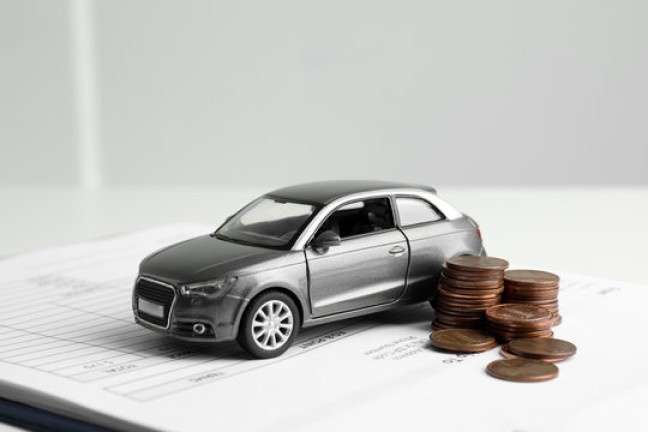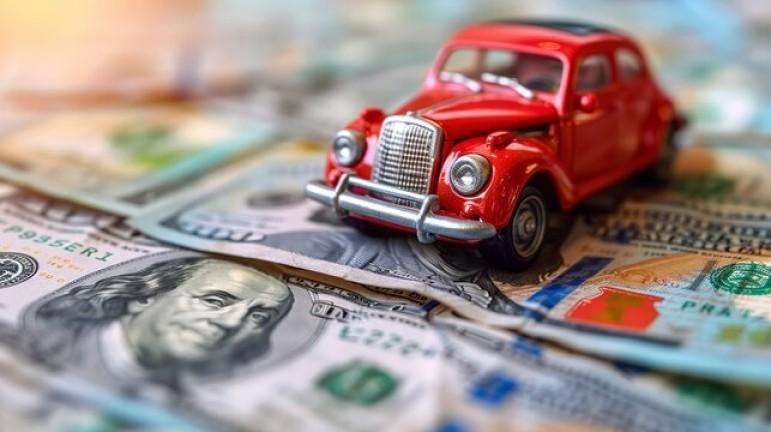When it comes to purchasing a car, many people look for financial assistance to ease the burden of paying upfront. One option that has gained significant popularity is auto bank car finance. If you are in the market for a car and are considering financing options, understanding what auto bank car finance is and how it works will help you make an informed decision.
Auto bank car finance refers to a loan that is offered by a bank or financial institution to help an individual purchase a vehicle. These loans come with specific terms and conditions, and it’s essential to understand the various components involved, including interest rates, repayment schedules, and the length of the loan. In this article, I will take you through all the details you need to know about auto bank car finance, provide comparisons, calculations, and tips to help you navigate the process.
Table of Contents
What is Auto Bank Car Finance?
Auto bank car finance is a financial product offered by banks, credit unions, or online lenders that enables consumers to borrow money for purchasing a car. The loan is typically secured, meaning that the vehicle itself serves as collateral. If the borrower defaults on the loan, the lender can repossess the vehicle to recover their funds. Auto bank car finance can be a viable option for people who want to spread the cost of their car over time rather than paying for the entire amount upfront.
Types of Auto Bank Car Finance
There are generally two types of auto bank car finance options available: hire purchase (HP) and personal contract purchase (PCP). Both come with their own set of advantages and drawbacks, and the right option depends on your financial situation and preferences.
- Hire Purchase (HP): Hire purchase is one of the most straightforward ways to finance a car. With HP, you make monthly repayments to the lender for the duration of the loan term. Once all the payments are made, you own the vehicle outright. The main advantage of HP is that it provides a clear path to ownership at the end of the loan term. However, the monthly repayments are usually higher compared to PCP.
- Personal Contract Purchase (PCP): PCP is a popular choice for many car buyers. With PCP, you are essentially renting the vehicle for an agreed-upon period with the option to buy the car at the end of the contract. The monthly payments are typically lower than HP because they are based on the depreciation of the car rather than the full value of the vehicle. At the end of the loan term, you have the option to buy the car by paying the balloon payment (the residual value), return the car, or trade it in for another vehicle.
Key Features of Auto Bank Car Finance
- Interest Rates: One of the most important factors to consider when choosing auto bank car finance is the interest rate. The interest rate will determine how much extra you pay on top of the loan amount. A lower interest rate means lower overall costs, while a higher interest rate increases the total amount you will repay. Interest rates can vary depending on your credit score, the term length, and the type of loan you choose.
- Loan Term: The loan term is the period over which you will make monthly repayments. Loan terms typically range from 12 to 72 months. A shorter loan term means higher monthly payments but less interest paid over time, while a longer loan term results in lower monthly payments but a higher total cost due to interest accumulation.
- Deposit: Many auto bank car finance options require an initial deposit. The deposit can vary, but a larger deposit will reduce the amount you need to borrow and, as a result, lower your monthly payments. A typical deposit for auto finance is between 10% and 20% of the vehicle’s value.
- Monthly Payments: Monthly payments are an essential aspect of auto bank car finance. You will need to carefully consider what you can afford to pay each month. It’s important not to overextend yourself financially, as defaulting on the loan could negatively impact your credit score.
How to Calculate Your Auto Bank Car Finance Loan
Let’s go through an example to help illustrate how auto bank car finance works. Suppose you are purchasing a car worth $20,000, and the bank offers you a loan with an interest rate of 5% over a term of 60 months (5 years). You decide to make a deposit of $2,000, reducing the amount you need to borrow to $18,000.
Step 1: Calculate the Interest
To calculate the interest on the loan, we will use a simple interest formula:
Interest = Principal x Rate x Time
Principal = $18,000
Rate = 5% (0.05)
Time = 5 years
Interest = $18,000 x 0.05 x 5 = $4,500
Step 2: Total Repayment Amount
Now, add the interest to the principal to get the total amount you will need to repay:
Total Repayment = Principal + Interest
Total Repayment = $18,000 + $4,500 = $22,500
Step 3: Monthly Payment
To calculate the monthly payment, divide the total repayment amount by the number of months in the loan term:
Monthly Payment = Total Repayment ÷ Loan Term
Monthly Payment = $22,500 ÷ 60 = $375
So, in this example, your monthly payment would be $375.
Comparison Table: Hire Purchase vs. Personal Contract Purchase
| Feature | Hire Purchase (HP) | Personal Contract Purchase (PCP) |
|---|---|---|
| Ownership | You own the car outright after completing the loan | You have the option to buy the car at the end or return it |
| Monthly Payments | Generally higher than PCP | Generally lower than HP |
| Deposit | Typically required, varies by lender | Typically required, but may be lower than HP |
| Loan Term | Usually 24 to 60 months | Typically 24 to 48 months |
| End of Term Options | Own the car at the end of the term | Buy, return, or trade in the car |
| Interest Rate | Fixed or variable rates available | Fixed or variable rates available |
Factors to Consider Before Choosing Auto Bank Car Finance
When deciding on auto bank car finance, several factors should be taken into account:
- Credit Score: Your credit score plays a crucial role in the approval process and the interest rate you receive. A higher credit score usually results in a lower interest rate, which can save you money in the long run. If you have a poor credit score, you may still be approved for a loan, but the interest rate will likely be higher.
- Car’s Depreciation: Cars typically lose value over time, and this is something to consider when taking out auto bank car finance. PCP loans are based on the anticipated depreciation of the vehicle, meaning that the loan amount is lower compared to the car’s total value. With HP, the monthly payments are based on the full value of the car.
- Monthly Affordability: It’s essential to determine how much you can comfortably afford to pay each month. Avoid stretching your budget too thin, as unexpected expenses or a change in your financial situation could make it difficult to meet your loan payments.
- Loan Flexibility: Some auto bank car finance options allow you to pay off the loan early or make extra payments without penalties. This can be a helpful feature if you come into extra money and want to reduce your overall loan balance.
Pros and Cons of Auto Bank Car Finance
Let’s take a closer look at the advantages and disadvantages of auto bank car finance:
Pros:
- Allows you to buy a car without having to pay the full amount upfront.
- Offers a predictable monthly repayment schedule.
- Available for new and used cars.
- Flexible terms and conditions depending on the lender.
Cons:
- Interest rates can be high, especially if your credit score is low.
- Defaulting on the loan could result in the car being repossessed.
- The car’s depreciation may affect the overall cost if you choose a PCP loan.
- A deposit is often required, which may be difficult for some people to afford.
Conclusion
Auto bank car finance can be a great option for those who wish to buy a car but don’t have the funds available to pay for it in full. By understanding the various types of auto loans, such as hire purchase and personal contract purchase, you can make an informed decision about which option is best suited to your financial situation. Remember to consider factors like interest rates, loan terms, and monthly payments before committing to a loan. If managed well, auto bank car finance can be an excellent way to drive away in your dream car without breaking the bank.





